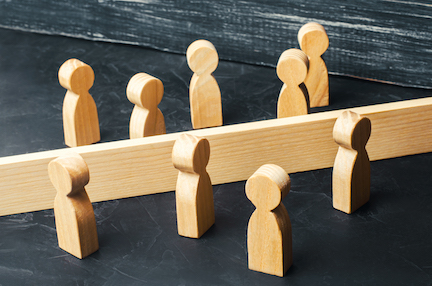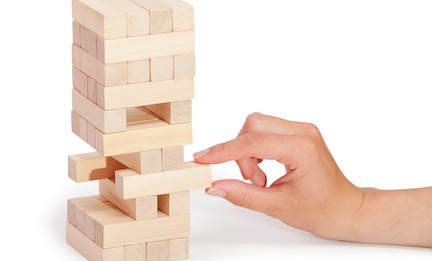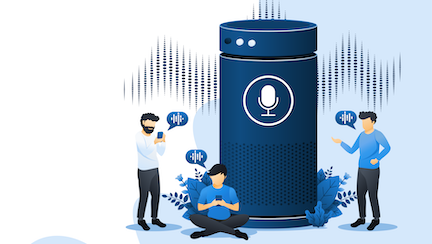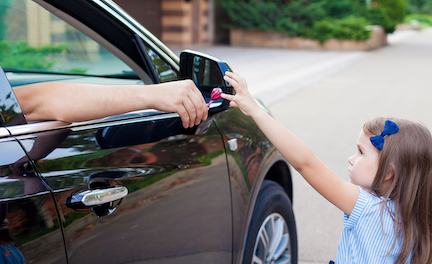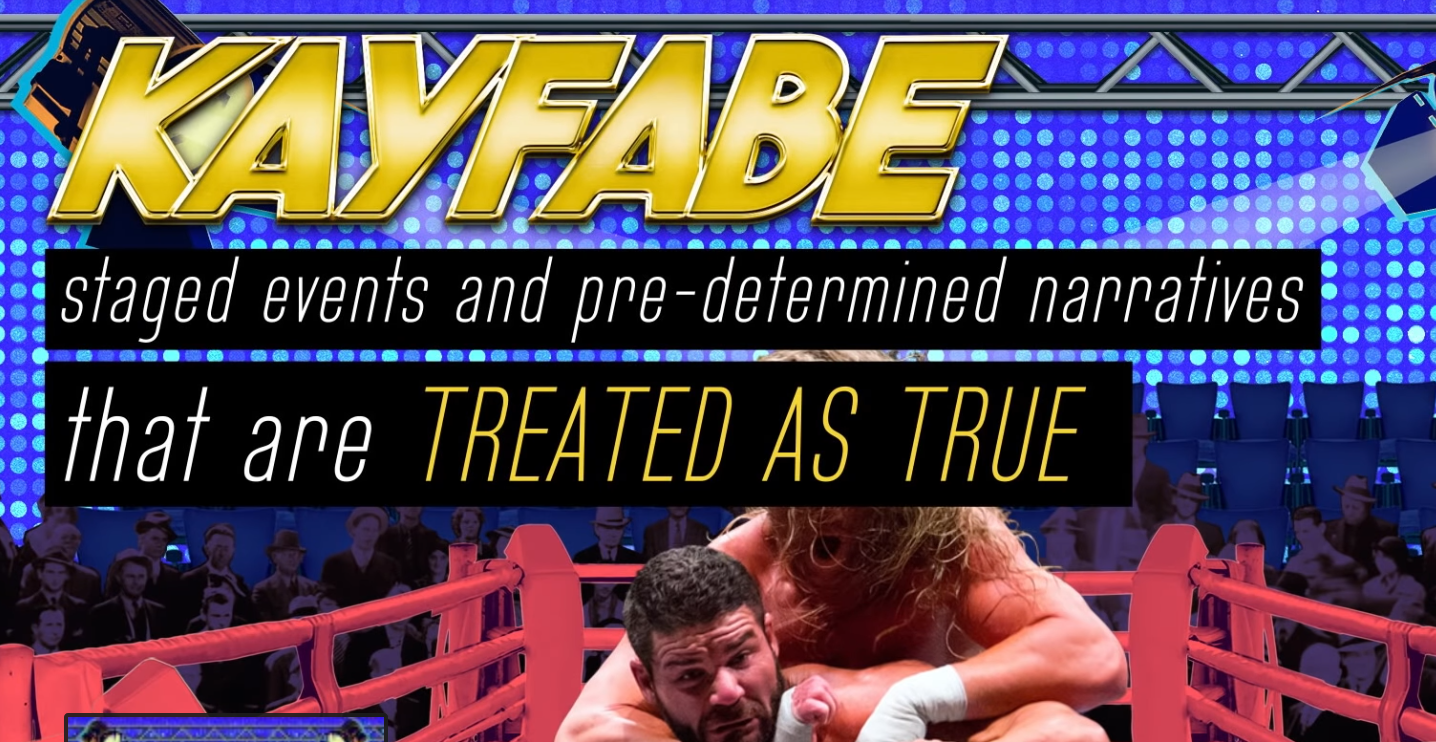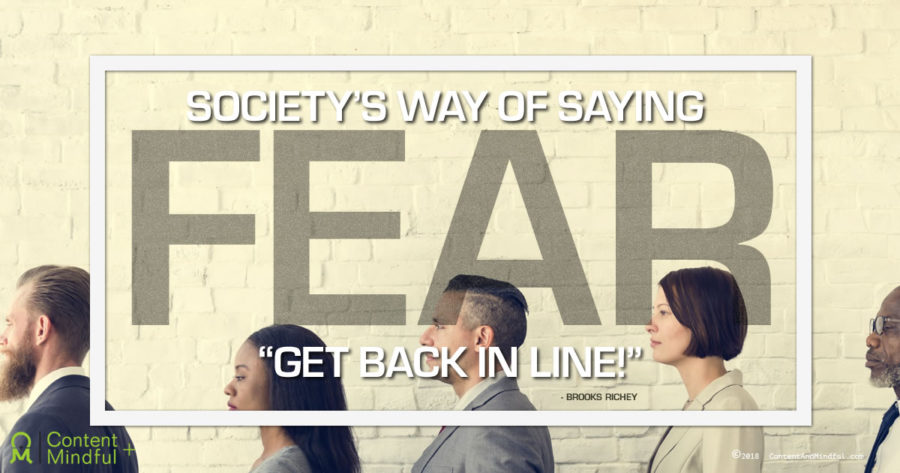
Fear. Society’s way of saying “get back in line.”
Be mindful of your fears. But if you want to experience your best life and best you, get past them.
We all feel fear at some point in our lives.
It’s that sense that something is about to happen that will hurt us in some way. Back in our cave-person days, fear kept us alive. Designed as our super-sensitive threat-detection system, it consciously and subconsciously scanned our environment to detect dangerous social cues (hostility, tribal tension), motion (something coming towards you) and sounds (like a roaring bear). If anything seemed amiss or harmful, your fear alarm bell would go off. The adrenal glands in your torso then pump your body with cortisol, adrenaline and glucose to give your body the energy to fight or run to stay alive.
That fear system is within us today but hasn’t adapted.
We, humans, have evolved from tribal hunters in a hostile and dangerous world to a coddled civilization surrounded by systems that protect us from most deadly harm (Unless you have lions are walking into your Starbucks.)
With a primed and high-performance fear response now in a world where you don’t run into too many life-and-death situations, your fear alarm goes off for more minor things. Today, most of us may feel it during events like giving a public speech or the decision to leave your job and start your own company. Allowed to fester, that fear can fill you with panic, make you shake or even immobilize you.
But remember. NONE of those things will kill you.
Even when giving a speech where you feel nervous, your outdated fear response has your brain trying to convince you that the outcome or the event itself could be “deadly.” Your brain is pumping adrenaline, stopping digestion, priming muscles and speeding your heart rate. In fact, no differently than the way your body would respond if a bear was looking to eat you.
While your body is primed to respond to a physical death threat, today, what’s really happening is more of a social kind of death:
- Embarrassment. Anxious people will laugh at you
- Loss. Feeling an emotional and physical absence
- Social connection. Feeling shunned or disconnected from groups you want to be a part of
- Failure. To be labeled or socially shunned as a loser
Your brain is reacting with alarm and making you fearful because it just wants to make sure you live. An overreaction, even though it’s not life and death. You need to be able to get past that fear to live the life you want.
How today’s fear manipulates you.
Fear obscures the big picture.
Success is a process. However, fear creates a narrow mindset that has you obsessing over a small step or phase in the process. An obsession that ends up overweighting that step’s impact on the overall outcome of the project. “If I mess up on my part of the speech, we’ll won’t win the new business.”
Fear lies to you about you.
How many times have you been fearful of an outcome that never came to life? Before you arrived on the other side of fear and found success, fear was that voice in your head telling you that, “you don’t have it in you.” That “you really don’t want to do this, anyway.” That people around you will laugh at you or you’ll be finally outed as the fraud you are. Stop.”
Fear makes your world small.
Fear makes the big world of opportunity around you tiny and limited by creating a world of don’ts. Don’t try. Don’t ask. Don’t go. Don’t touch. Don’t laugh. Don’t bother. Hard to see your possibilities or get to your goals when all you see are perceived stop signs.
Society will harness your fear against you.
We are social creatures. It comes from our tribe mentality and our intuitive belief that our survival is connected to membership in a tribe. Our biggest source of fear usually comes from what we think are the consequences of going against the grain of what our peers (those in our tribe) want or celebrate.
Your parents really want you to be a doctor or an accountant. Why?
- Because society respects and approves of such roles like these
- Job security
And those expectations get sub-communicated to you by your social circle or the authorities of your tribe. When you think about straying from those expectations, that tension can be felt as fear.
I remember when I told my parents I wanted to go into advertising. They really didn’t understand advertising, so it was hard for them to give their blessing or approval. I was going to do it anyway but I felt the transference of fear from them (Are you sure you want to do this unsure thing?).
As far as job security, my parents approach to my desire wasn’t “was I happy?” It was “does this make money?” In other words, “Will you be safe? Will you make money?”
I’m sure others that have wrestled with their internal desire to find work or a career that’s meaningful have also sought society’s (including your parents’) seal of approval and validation. Many let the fear of disappointing those around us cause us to walk away from our dreams. To “stay in line.”
Fear says “Don’t even think about it.” Stay in line.
Political ads. Especially the recent congressional mid-term ads were especially guilty of this. Both sides pleaded with citizens to stick with party affiliation. Pleas based on describing scary consequences of not voting the party line rather than seeking to inspire citizens with better opportunities and vision. In paraphrasing the two competing fear messages, it was either:
“Trump will destroy America. Vote Democrat. Or
“Foreigners will cross the border and get you or take your things. Vote Republican.”
Both types of appeals attempt to shut down any effort to move forward or reach out to other ideas. Instead, it’s, “Your place is here. You will be hurt if you don’t obey. Don’t move.”
Fear’s consolation prize. Mediocrity.
Accepting the arguments of fear rarely raises one’s standards. Or makes you a better you. It just makes you put up with what you already have. Or simply follow the heard.
Stay in the crowd. Be average. Shut up and take it. Don’t stand out. You’re safer lost in the group.
The people we admire in life, rejected fear and did just the opposite.
Think of people like Steve Jobs. Sheryl Sandburg. Michael Jordan. Mark Zuckerberg. None of them simply looked around and said, “I’m as good as those around me. That’s good enough.”
They might have felt fear at putting themselves out there and taking a chance. Yet they succeeded because they didn’t trade their fear and desire for the safety and smooth, still waters of mediocrity. They didn’t play it safe. They walked through the flurry of arrows and slings of critics, naysayers and faced the risk of failure because they believed that a better idea or a better person was on the other side.
Mastering their fear, they stepped out of line and didn’t wait their turn. In fact, they cut in front of others waiting in line by becoming passionate sponsors of their talent, vision and will.
Meanwhile, society around them said, “Don’t leave your safe job.” “Don’t ry it. You’ll make people angry.” “Oh no. You can’t do that.”
Until they did.
Fear is a well-known liar. Believe in yourself. Not fear. Hone your skills. Know that action drives success. And let that be your truth.
Use mindfulness to control fear.
If you are human, fear never goes away. What can change is how you perceive it and react to it.
Scientists have found, that when visual cues are taken away, it’s hard for people to differentiate between feeling fear or being thrilled with excitement. Your perception and how you see cues around the event is the key.
How do you control the perception? Employ actions of mindfulness including:
- Breathing.
When you get nervous, your breathing tends to become fast and narrow as your body prepares to take action (like run). Instead, focus on taking deep, slow breaths. Inhale slooooooowly. Hold it for about two seconds, then exhale. Repeat.
Your mind affects your body’s response, but your mind also takes cues from your body. When your mind sees that your calm breathing isn’t aligned with what it thought should be a life-threatening event, it starts to calm down and stand down for threat def-con one as well.
- Accept all outcomes.
The perception of fear is accelerated when you focus on the possible outcomes of your actions more than simply executing the actions themselves. Be mindful and present by concentrating on the job at hand. Your focus on your breathing will help you concentrate as well as help distract you from drifting to thoughts about potential outcomes like failure.
And if you do fail, so what?
Even World Series Major League Baseball champions lose games along the way. Everyone fails. The successful just know it’s part of the process to success. Just know you’ll learn to do better and try again.
- Others’ opinions are not your reality.
AirPods where roundly laughed at when Apple first debuted them during a keynote event. Critics laughed. Ok, I laughed, too. The white earbuds with the long white stem had critics making analogies to the “There’s Something About Mary” hair-gel-on-the-ear scene. Embarrassing, right?
Apple had the last laugh. The white wireless headphone almost immediately sold out and are still a big seller for Apple.
Critics (like me) were wrong. Your critics and obstacles you face are probably wrong, too. Don’t fear them.
Now, go be great and rise above fear.
Unless a fear gives you a clear reason, always be prepared to walk past your fears, your critics and perceived outcomes. Use mindfulness as your guide and you’ll find a better you is just beyond the fear.
Hey, I wrote a book about being mindful in the new age of content.
Does This News Make You Look Fat? A book about media consumption and how the way we consume it makes us intellectually obese. Preview or buy the ebook at Amazon.


